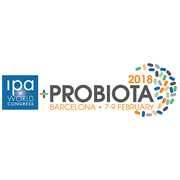The animal study was published in mSphere, while the human research appeared in Digestive and Liver Disease.
In the mouse study, scientists found that feeding a high-fat diet to the rodents induced significant changes not only to the bacterial composition of the gut but also to the fungal population make-up.
The scientists also found the existence of correlations between the relative numbers of certain groups of bacteria and fungi. When mice were fed a high-fat diet, these inter-kingdom structural relationships (and correlations) were significantly disrupted, found the research team from the University of Minnesota.
"Not only are we affecting the community of fungi with dietary change, but we also see that relationships between fungi and bacteria are changing," commented lead researcher Professor Cheryl Gale. "These kingdoms are not in isolation. If one changes, it is going to impact the community structure and maybe the functional structure of other kingdoms as well. I think that is where the microbiome field is moving."
This is the first study to show that the effects specifically of a high-fat diet on the mycobiome. Nevertheless, human studies have previously shown that changes in diet can modify gut fungal communities and these altered populations may be linked to intestinal inflammation.
IPA World Congress + Probiota 2018

The rapidly evolving universe of probiotics, prebiotics and the microbiome will be discussed in-depth at the upcoming IPA World Congress + Probiota 2018 in Barcelona on February 7-9.
From microbiome advances, to start-up game changers, market stats, crucial clinical science and regulatory knowledge, this is a congressional must-have.
Will you be joining your peers in one of Europe’s great cities?
Fungus and Crohn’s Disease (CD)
The inflammatory influence of fungi in CD was explored by scientists from Case Western Reserve University and University Hospitals Cleveland Medical Centre, Cleveland, Ohio.
Comparing the bacterial microbiome and fungal mycobiome of family members with CD, and healthy relatives, they found that CD patients had much higher levels of the fungus Candida tropicalis, together with two bacterial pathogens.
“We found that patients with Crohn’s disease (CD) tend to have much higher levels of the fungus Candida tropicalis compared to their healthy family members, as well as two bacteria, Escherichia coli and Serratia marcescens,”
Additionally, levels of C. tropicalis present in the gut were well correlated with the numbers of the two harmful bacteria plus several other species.
The researchers also showed that the three organisms worked together to form stable biofilms capable of worsening gut inflammation.
Fungal species such as C. tropicalis, which initially exist in a yeast form, can also transform into a more pathogenic fungal form by the growth of hyphae, the scientists explained.
Previous research has shown that other harmful yeast/ fungal species such as C. albicans can work with the bacteria Ruminococcus gnavus to produce enzymes which degrade the mucous membrane in the gut to increase intestinal permeability.
Significance
The study is the first to identify the collaborative role of bacteria and fungi in exacerbating the inflammation in CD. It also further highlights the relative unrecognised influence of the fungal gut community in the progression of inflammatory bowel disease (IBD).
"The human gastrointestinal (GI) tract is home to trillions of microorganisms, some beneficial and others potentially harmful. Recent advances in science have allowed us to identify the multitude of organisms inhabiting the GI tract and parse out those that play a role in IBD," explained lead author Professor Mahmoud A. Ghannoum.
"Unfortunately, most research has focused on studying only the bacteria while overlooking a key player, fungus. In order to address this issue, we have focused our efforts on studying the fungal community in the GI tract known as the mycobiome."
Future treatment strategies
The study findings represent a breakthrough in the understanding of the IBD process, and has implications for future therapies.
"Our ground-breaking discovery that bacteria and fungi both play a critical role in health and disease has tremendous implications not only for understanding the disease process, but also for development of potentially life changing treatments for those who suffer from chronic digestive diseases," siad Ghannoum.
“One approach to combat these symptoms includes the use of antifungals together with probiotics. Antifungals will control the overgrowth of fungi, while probiotics can help restore and maintain the balance of the microbiota,” he added.
However, the design of the probiotic should take into account the finding that both bacteria and fungi play a part in IBD, the researchers emphasised.
“Administration of a probiotic, containing both good bacteria and good fungus to restore the balance of beneficial organisms, could be a promising new approach to treat IBD,” concluded the scientists.
Source (Animal Study): mSphere
Published online, doi: 10.1128/mSphere.00351-17
“High-Fat Diet Changes Fungal Microbiomes and Interkingdom Relationships in the Murine Gut”
Authors: Timothy Heisel, Cheryl A. Gale et al
Source (Human Study): Digestive and Liver Disease
Published online, doi: 10.1016/j.dld.2017.08.025
“The mycobiome: Role in health and disease, and as a potential probiotic target in gastrointestinal disease”
Authors: Christopher L. Hager and Mahmoud A. Ghannoum
